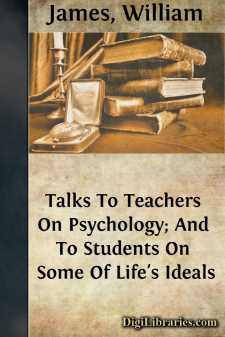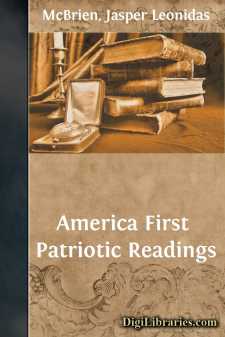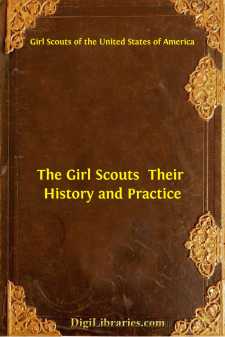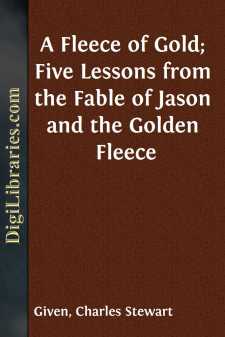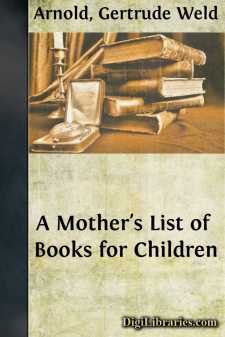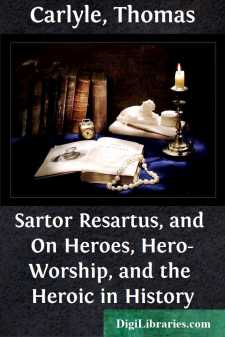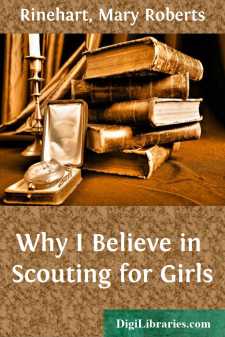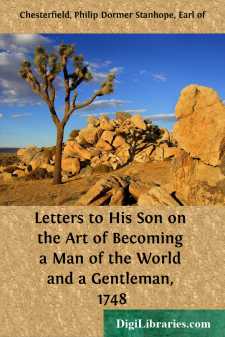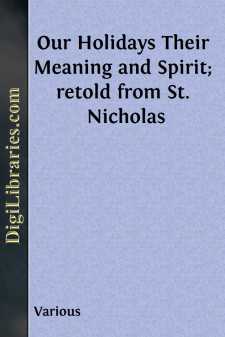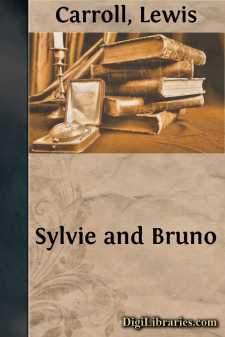Juvenile Nonfiction
- Animals 10
- Art 1
- Biography & Autobiography 2
- Boys & Men 1
- Business & Economics 3
- Cooking & Food 2
- Gardening 1
- General 32
- Girls & Women 7
- History 2
- Holidays & Celebrations 1
- Lifestyles 79
- Literary Criticism & Collections 5
- Nature 11
- Readers 40
- Religion 4
- Sports & Recreation 1
Juvenile Nonfiction Books
Sort by:
by:
William James
TALKS TO TEACHERS In the general activity and uprising of ideal interests which every one with an eye for fact can discern all about us in American life, there is perhaps no more promising feature than the fermentation which for a dozen years or more has been going on among the teachers. In whatever sphere of education their functions may lie, there is to be seen among them a really inspiring amount of...
more...
INTRODUCTION This dramatization of the Continental Congress portrays the spirit of the times during the period of the American Revolution. It deals principally with the debates for and against the Declaration of Independence; it is a summary of the grievances, struggles, sacrifices, and victories of the colonies from the enactment of the obnoxious Stamp Act by the British Parliament to the resignation...
more...
GIRL SCOUTS History of the American Girl Scouts. When Sir Robert Baden-Powell founded the Boy Scout movement in England, it proved too attractive and too well adapted to youth to make it possible to limit its great opportunities to boys alone. The Sister organization, known in England as the Girl Guides, quickly followed it and won equal success. Mrs. Juliette Low, an American visitor in England, and a...
more...
The Ruling Element "Jason and His Men."What constitutes a state?Not high-raised battlements or labored mound, Thick wall or moated gate;Not cities proud with spires and turrets crowned; Not bays and broad armed ports,Where, laughing at the storm, rich navies ride; Not starred and spangled courts,Where low-browed baseness wafts perfume to pride. No! men--high-minded men--With powers...
more...
Preface This little book, a revision of one privately printed a few years ago, has been prepared for home use, and for this reason the classification has been made according to the age, and not the school grade, of the child. But as children differ so greatly in capacity, it should be understood that in this respect the arrangement is only approximate. The endeavor has been made to choose those fairy...
more...
by:
Thomas Carlyle
INTRODUCTION One of the most vital and pregnant books in our modern literature, “Sartor Resartus” is also, in structure and form, one of the most daringly original. It defies exact classification. It is not a philosophic treatise. It is not an autobiography. It is not a romance. Yet in a sense it is all these combined. Its underlying purpose is to expound in broad outline certain ideas which lay at...
more...
Girls are great idealists. No one familiar with the working of the girl mind can fail to recognize how quickly they respond to ideals. They dream dreams, not of success, but of happiness. They look up rather than out. But they are vague and uncertain, full of wistful yearnings that lead nowhere. Given a cause and a leader, and they will bring to it an almost pathetic eagerness, staunchness, loyalty,...
more...
DEAR BOY: I am edified with the allotment of your time at Leipsig; which is so well employed from morning till night, that a fool would say you had none left for yourself; whereas, I am sure you have sense enough to know, that such a right use of your time is having it all to yourself; nay, it is even more, for it is laying it out to immense interest, which, in a very few years, will amount to a...
more...
by:
Various
Our Holidays King Henry IV, Part I. ST. SATURDAY BY HENRY JOHNSTONEOh, Friday night's the queen of nights, because it ushers inThe Feast of good St. Saturday, when studying is a sin,When studying is a sin, boys, and we may go to playNot only in the afternoon, but all the livelong day. St. Saturday—so legends say—lived in the ages whenThe use of leisure still was known and current among...
more...
by:
Lewis Carroll
"What's your name, little one?" I began, in as soft a voice as I could manage. And, by the way, why is it we always begin by asking little children their names? Is it because we fancy a name will help to make them a little bigger? You never thought of as king a real large man his name, now, did you? But, however that may be, I felt it quite necessary to know his name; so, as he didn't...
more...


